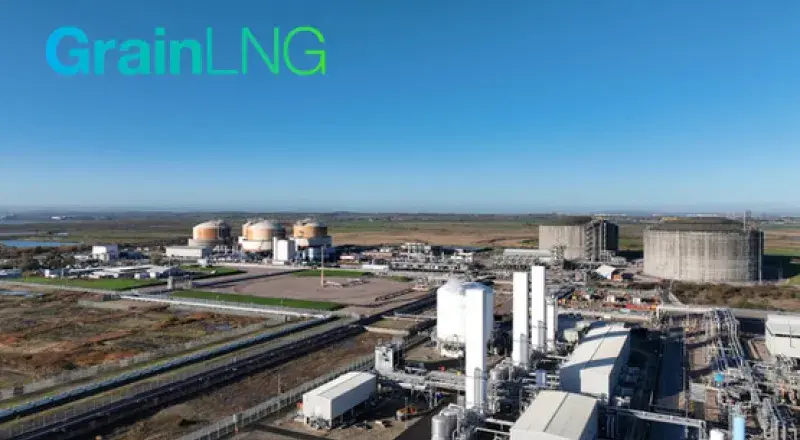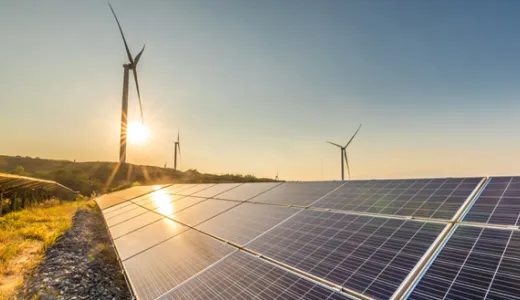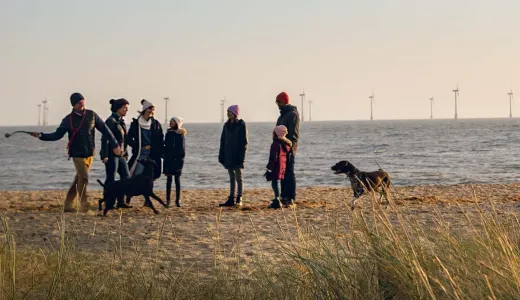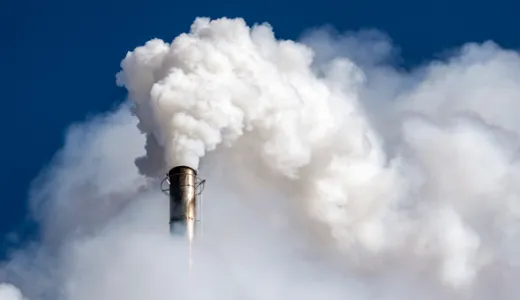What is liquefied natural gas?
Liquefied natural gas (LNG) is natural gas that has been reduced to a liquid state, through a process of cooling. It’s been part of the UK’s energy mix for many years, but could it be the fossil fuel that has yet to reach its true potential as we move towards cleaner, low-carbon energy systems?
Natural gas is a ‘traditional’ source of energy that is already used for a range of functions, from heating our homes and businesses to cooking and transport. But the fact that it’s a fossil fuel means there’s a limit to how long we can continue to rely on it.
However, as the world moves towards net zero carbon emissions and renewable energy sources, here’s why LNG may be the ‘clean’ fossil fuel that’s best-placed to help us transition to a carbon-free future.
How is LNG made?
LNG is created by transforming natural gas into a liquid state, by cooling it to -161oC (-259F). The process reduces it to 1/600th of its original un-liquified volume and to half the weight of water.

Why is LNG cleaner than other natural gases?
LNG produces 40% less carbon dioxide (CO2) than coal and 30% less than oil1, which makes it the cleanest of the fossil fuels.
It emits significantly less soot, dust or particulates compared to coal/oil and produces insignificant amounts of sulphur dioxide, mercury and other compounds considered harmful to the earth’s atmosphere.
Clear, odourless and colourless, LNG is typically 85-95% methane, which contains less carbon than other forms of fossil fuels. It can contain low amounts of ethane, propane, butane and nitrogen; the exact composition varying depending on its source and processing.
Why is LNG important for the transition to net zero?
LNG helps with what’s known as the ‘energy trilemma’, which refers to finding a balance between three key requirements in our energy choices: we want affordable energy; we want our energy supply to be secure; and, we want to drive down our carbon emissions to net zero.
LNG can help with making energy affordableFuel poverty is a real problem in the UK, so providing affordable energy is critical. LNG helps with the pressures on cost of living because there is a global market providing a choice of supply. Currently, we import gas from places as varied as Qatar, Algeria, USA, Norway, Australia and Trinidad. This choice means we benefit from price competition, which can lower costs. |
LNG can ensure we get a secure energy supplyTo ensure we don’t become over-reliant on a single source, we need to secure LNG from as many places as possible. Access to a diversity of suppliers can not only reduce prices, but it can also give us the flexibility to move to more reliable shippers or avoid geo-politically sensitive markets. |
LNG can ‘fill the gaps’ when renewable energy sources fluctuateAs we move to renewable sources of energy, we also experience fluctuations in supply; for example, there will be less solar energy when the sun isn’t shining and less wind power when the wind isn’t blowing. Making sure we have reliable energy is essential and LNG is well-placed to fill in the gaps in the more intermittent ‘green’ energy, so there’s continuity of supply. |

LNG in the UK
Grain LNG is Europe’s largest LNG importation terminal and plays an essential role in the transition to a cleaner energy future. It can take the widest range of LNG compositions in the world and has the flexibility to deliver gas whenever and wherever it’s needed. With the terminal capable of supplying up to 25% of the UK’s energy needs, it will be a critical part of the UK energy mix for many years.
LNG as part of our energy future
Natural gas may be a fossil fuel, but it’s making the transition to green energy possible – successfully helping renewables to become the UK’s largest source of power.
And LNG has other uses in the race to net zero. It can act as the ‘feedstock’ for low-carbon hydrogen – a net zero process as it captures the carbon emissions during the manufacturing process – meaning it has the potential to become part of a new hydrogen economy.
Last updated: 03 Apr 2024
The information in this article is intended as a factual explainer and does not necessarily reflect National Grid's strategic direction or current business activities.




